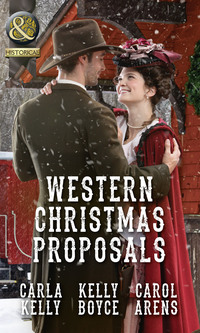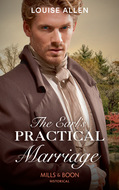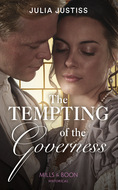Kitap dosya olarak indirilemez ancak uygulamamız üzerinden veya online olarak web sitemizden okunabilir.
Kitabı oku: «Western Christmas Proposals»
A RING, A KISS AND A CHRISTMAS WISH
THREE DELICIOUS SEASONAL STORIES
CHRISTMAS DANCE WITH THE RANCHER by Carla Kelly
Stranded, Katie becomes chore girl on Ned Avery’s ranch. He shows her unexpected kindness...and in exchange, she teaches him how to dance!
CHRISTMAS IN SALVATION FALLS by Kelly Boyce
Willa Stanford moved to Salvation Falls to start afresh, but then the past—in the shape of her former sweetheart—arrives at her door.
THE SHERIFF’S CHRISTMAS PROPOSAL by Carol Arens
When widower Roy Garner falls for lovely Belle Key, he’s hoping for a very happy Christmas. Until he discovers Belle’s dark secret...
Praise for the authors of
Western Christmas Proposals
CARLA KELLY
“Kelly is a master at emotional, uplifting romances.”
—RT Book Reviews on The Wedding Ring Quest
KELLY BOYCE
“Boyce captures the spirit of the American West.”
—RT Book Reviews on Salvation in the Sheriff’s Kiss
CAROL ARENS
“Sensational… Western fans will enjoy Arens’ sense of humour, fast pace and continuous action.”
—RT Book Reviews on Wed to the Texas Outlaw
CARLA KELLY started writing Regency romances because of her interest in the Napoleonic Wars. She enjoys writing about warfare at sea and the ordinary people of the British Isles rather than lords and ladies. In her spare time she reads British crime fiction and history—particularly books about the US Indian Wars. Carla lives in Utah and is a former park ranger and double RITA® Award and Spur Award winner. She has five children and four grandchildren.
A life-long Nova Scotian, KELLY BOYCE lives near the Atlantic Ocean with her husband—who is likely wondering what he got himself into by marrying a writer—and a golden retriever who is convinced he is the king of the castle. A long-time history buff, Kelly loves writing in a variety of time periods, creating damaged characters and giving them a second chance at life and love.
CAROL ARENS delights in tossing fictional characters into hot water, watching them steam, and then giving them a happily-ever-after. When she’s not writing she enjoys spending time with her family, beach camping or lounging about a mountain cabin. At home, she enjoys playing with her grandchildren and gardening. During rare spare moments you will find her snuggled up with a good book. Carol enjoys hearing from readers at carolarens@yahoo.com or on Facebook.
Western Christmas Proposals
Carla Kelly
Kelly Boyce
Carol Arens

MILLS & BOON
Before you start reading, why not sign up?
Thank you for downloading this Mills & Boon book. If you want to hear about exclusive discounts, special offers and competitions, sign up to our email newsletter today!
Or simply visit
Mills & Boon emails are completely free to receive and you can unsubscribe at any time via the link in any email we send you.
Table of Contents
Cover
Back Cover Text
Praise
About the Authors
Title Page
CHRISTMAS DANCE WITH THE RANCHER by Carla Kelly
CHRISTMAS IN SALVATION FALLS by Kelly Boyce
THE SHERIFF’S CHRISTMAS PROPOSAL by Carol Arens
Extract
Copyright
Christmas Dance with the Rancher
Carla Kelly
To my Trask cousins, scattered around the US now, but who grew up in the ranching life near Worden, Montana. I recall some early Christmases in both Montana, and in Cody, Wyoming, where my father was raised. My cousins figured largely in those memories and remain important to me.
Dear Reader,
My years as a writer of Regency-era historical fiction were preceded by earlier times as a writer of Westerns. My first successes came writing about Native Americans, soldiers, stockmen, miners and mountain men and were somehow hardwired into my writer’s brain. They remain there even now, except for occasional excursions into writerly territory.
I sometimes have to plead for a chance to write about the American West, but it’s always worth it. I’ve known cowboys and Indians and miners, and I know them to be a fairly taciturn lot, not fans of flowery conversation or anything smacking of insincerity.
Nineteenth-century ranching was a hard life, and Christmas sometimes got short shrift. Ranchers and sheepherders probably understand better than most the kind of desperation that will force a young father and mother to gladly take whatever humble space was offered in a barn. They knew a lot about mangers and hay, and necessity.
I can almost guarantee other Christmas stories you read will be far more flowery and romantic than this one. What you’ll find in Christmas Dance with the Rancher is courage, doing what the day requires and deep emotion welling up from hearts that, although hardy, are tender.
The best of the holiday season from my part of the West, Idaho.
Carla Kelly
Contents
Dedication
Dear Reader
Chapter One
Chapter Two
Chapter Three
Chapter Four
Chapter Five
Chapter Six
Chapter Seven
Chapter Eight
Chapter Nine
Chapter Ten
Chapter Eleven
Chapter Twelve
Chapter Thirteen
Chapter Fourteen
Chapter Fifteen
Chapter Sixteen
Chapter Seventeen
Chapter Eighteen
Chapter One
Chastened, subdued and unhappy, Ned Avery woke up to “Cheyenne! Cheyenne! Fifteen minutes” from the porter walking through the rail car and clanking his three chimes.
I’m not going home without a chore girl, Ned thought for the umpteenth time.
Why had he left Pete alone with Pa for his recent trip to Cheyenne? Ned had gone over with Pete his plain and simple orders of taking care of Pa for ten days while Ned and his hands pushed the herd through to Cheyenne and onto the railcars for Chicago. Over and over and each time Pete nodded in his kindly way. Bread and tinned meat and fruit were each carefully numbered and arranged on the kitchen table, and still Pete nodded.
I was a fool to think he’d follow through, Ned berated himself silently, as the Union Pacific slowed and steamed to a stop at the depot on Fifteenth Street.
Even now, just a day after his return to the ranch from Cheyenne, he could still see the kitchen table with eight days’ worth of food gone, but two still as Ned had left them. Sitting in the rail car now, the crisis over, his heart started beating faster at the memory of food uneaten. He had run down the hall through the connecting rooms, calling for Pa, who was still alive for some reason.
Pa’s mild indictment, as he deflected any blame from Peter and Ned, had hurt worse than the mess Pa lay in. “Son, I tried to get up and help myself,” Pa had told him, his voice softer than a whisper.
The porter opened the door of the car, which pulled Ned out of his personal condemnation. Silent, he took his carpetbag from under the seat and waited behind an army officer for his turn to get off the train.
Who’s going to run this ranch if I can’t trust Pete when I have to be away? ran through Ned’s mind again. In the end, there was only one solution: they needed a chore girl. Pa railed against being so dependent, but they still needed a chore girl. So he left to go straight back to Cheyenne.
“I don’t know where to look,” he had whined to Mrs. Higgins, the wife of his nearest neighbor who had agreed to watch Pa and Pete while he made a rapid return to Cheyenne.
“The Lord will provide,” Mrs. Higgins had assured him.
He found this platitude not even slightly comforting. After sweet little Pete, as bright a brother as anyone could want, was kicked in the head by an irritated cow, and never grew up much in his mind, Ned hadn’t seen any reason to bother Deity.
He knew better than to return a sharp comment to Mrs. Higgins, since she was kind enough to watch Pa and Pete, so he strove for diplomacy. “Mrs. Higgins, if the Lord is busy and not inclined to help, can you think of how He might provide a chore girl?” he asked. “I need a hint.”
She gave him a pitying look, as if wondering why a grown man should ask such a question, but at least she didn’t turn away. She was going to get her licks in, though.
“Ned Avery, when did you last go to church?”
He thought a moment, hoping for an easy answer, but nothing came to mind beyond Ma’s funeral now well over ten years ago when he was twenty.
“My mother’s funeral,” he said quietly, which at least seemed to deflect the scold he thought he saw in Mrs. Higgins’s eyes.
“She was a good woman,” Mrs. Higgins said. “The Lord giveth and the Lord taketh away.”
This was no time for a theological argument about the Lord’s weird choice of people who should quit the earth, so Ned bit back his own comment. “Where can I find a chore girl?” he repeated.
“Where does the Lord provide the most?” Mrs. Higgins asked, then thankfully answered her own question, because Ned was still coming up short. “Try a church in Cheyenne.”
“Just wander up and ask the preacher if he knows of a chore girl?” Ned asked, his patience lurking just this side of exasperation.
“No! Sometimes churches take in unfortunate women who have fallen on hard times.”
“So I’ll need to count the silverware every night and hope no one tries to take advantage of my chastity?” he teased.
“Try it, Ned,” Mrs. Higgins had said, and she did not sound amused. “You are trying my Christian patience.”
* * *
He tried it, asking the depot master where there might be a church in Cheyenne. Ned just barely remembered Cheyenne before the railroad came through, with Irishmen jabbering and swearing, and Mama trying to cover his ears and Pete’s at the same time. Cheyenne’s boomtown growth had brought gamblers and fancy ladies and Chinese laundries and cafes, but no church then. The matter hadn’t troubled him since, but now, if Mrs. Higgins was right, he needed to find a church.
The depot master knew him. Hell, everyone knew the Averys of Medicine Bow. Dan Avery had been a Mississippi rebel among the earliest of former Confederates who followed the construction of the Union Pacific and stayed. From 1868 up to 1890, they had endured, and now times were better.
“Ned, you might try Third Street. There’s a First Methodist Church on the corner.” He chuckled. “And you might try the Second Methodist Church on the opposite corner! There was a theological argument, I believe, and some chairs were thrown around.”
Uncertain, Ned lingered at the depot. For some reason, he turned his attention to that corner of the lobby where only two nights ago, he had noticed a woman sitting on a trunk, chin in hand. He thought it odd that she wasn’t sitting on the bench, which made him suspect she trusted people as little as he did.
She was long gone now, but he remembered her pale skin and her brown eyes, probably nothing special in themselves, except that her eyes were large and the brown so deep.
He also remembered the worried look in them, and how he had just resisted the urge to go over there and ask her if something was wrong, and if he could help. He had even checked back later that evening, but she was gone by then. Whoever was supposed to meet her in Cheyenne must have finally arrived. Ned couldn’t help hoping she gave the man—husband, fiancé, whatever—a piece of her mind. Ladies had no business sitting alone in train depots.
Never mind that. “Chore girl, chore girl,” he muttered out loud as he went first to the Plainsman to get a room for the night, ate lunch, and then went in search of the First or Second or maybe Third Methodist Church in town. Or maybe it was the Second Methodist Church on Fourth Street?
The First Methodist Church promised some help, if only because a man stood by a signboard, putting up letters to spell next Sunday’s sermon. Ned watched for a moment as The Wag turned into The Wages of Sin.
Ned thought about his most recent sin, a pleasant one, really, committed four days ago in Nettie Lewis’s parlor house on Third Street. Hopefully the man putting up the sign wouldn’t be able to read Ned’s misdemeanors on his face.
“Sir, I’m looking for a chore girl,” he said, with no preamble. “The stationmaster said you might know some poor unfortunate lady a bit down on her luck and...”
The man pointed across the street to the Second Methodist Church. “He takes in strays.”
That was one way to put it. Ned couldn’t help conjuring up the image of a bedraggled pup that had wandered onto the Eight Bar many years ago. Mama had let him keep the ragged morsel until it became obvious they were harboring a wolf.
Ned crossed the street to the building with raw, unpainted wood proclaiming itself the Second Methodist Church. He heard someone singing “Rock of Ages” in a vigorous baritone, and followed the sound.
The singer was a man almost as short as he was round, slapping on paint in rhythm to his hymn. Ned watched in real appreciation until the man noticed him and stopped.
“Did you come to help, sonny?” the man asked.
Ned came closer and saw that the painter was at least a decade older than his own father, but brimming with health and energy that Dan Avery no longer possessed.
“Not quite, sir,” Ned told him. “I’m from the Eight Bar near Medicine Bow and I need to hire a chore girl in the worst way. A neighbor lady told me the Lord would provide, so I’m here.”
“Reverend Lucius Peabody,” the man said. “Racine, Wisconsin, come West to rescue the damned. In the worst way, you say? That’s an odd way to phrase your needs in front of a minister of the gospel.”
“Oh, no!” Ned began. “I mean I need to find such a person right now to help care for my father, who has heart disease, and look after the house. I’ll pay thirty dollars a month, but she has to be respect...”
The minister held up his hand, brush and all, appearing not to notice the paint dripping down his arm. “I don’t run an employment agency,” he said, “but I might be able to help you. Come closer.”
Ned did as he was bid, holding out his own handkerchief when the little man appeared not to possess such a thing. Reverend Peabody took it with a nod and wiped his arms after setting the brush in the tin can.
“Two nights ago, the sheriff brought a little miss here. She’d been waiting for her fiancé from Lusk to pick her up at the depot.” The minister had dropped his voice to barely above a whisper.
I know, I saw her, Ned thought, filled with chagrin that he had done nothing about his charitable impulse.
“He hasn’t showed up yet?” Ned asked.
“Worse than that,” Peabody said with a shake of his head. “She said her fiancé was a man from Maine, name of Saul Coffin. Sheriff Miller got a garbled telegram from Lusk’s sheriff, something about a shooting that left one man dead or nearly so, and the other in jail.” The minister looked skyward, as though expecting a vision. His hand went up to trace imaginary letters, courtesy of Western Union. “Bar fight. Stop. Coffin. Stop. Deader than Abe Lincoln. Stop.” He put his hand down. “Miss Peck said her fiancé had a foul temper, but who’s to say the coffin was just a coffin, with anybody in it, or the sheriff meant Saul Coffin?”
“If Mr. Coffin never showed up, that’s a pretty good indication,” Ned began. “What’s the law like in Lusk?”
“’Bout like this letter, sketchy, garbled and confused,” Peabody replied. “And the sheriff fought for the South. Writing coherent messages has never been his specialty.”
He stood there for a long moment, sizing up Ned, who gazed back. “You don’t seem like a bad customer,” he said finally. “Follow me.”
Not sure whether to be offended or amused, Ned followed him around the church to a side already painted, which featured a young woman standing on a wooden box, scrubbing the window.
She was humming to herself and hadn’t seen them yet, so Ned hung back just to look at her, the same young woman he had noticed two days ago in the depot.
Her hair was covered in a bandanna, but he already knew it was smooth and dark brown. He couldn’t see her entire face yet, but he recognized her trim figure.
“Miss Peck?” the Reverend Peabody called.
Even before she turned around, Ned knew he would see brown eyes of considerable depth. Now he saw interest and even recognition.
“You were in the depot a few nights ago,” she said to Ned.
At least, he thought that’s what she said. Her accent was charming, but nearly incomprehensible and made him shake his head.
She must have seen that reaction several times since she had left wherever it was she came from. She repeated herself more slowly, and the words came out stilted and exaggerated, but understandable.
“I was,” he replied. “Beg pardon, ma’am, but where are you from?”
“The US, same’s you,” she said. “Maine.” She spoke slowly and distinctly. “Maybe you would introduce yourself?”
Of course. Lord, he was a ninny. “Um, Edward Avery, ma’am, and you are?”
“Katherine Peck,” she said. Still standing on the box, she set the wet rag in the bucket, swiped her hand across an apron many sizes too large for her, and held it out to him.
He shook her hand, enjoying the firmness of her damp handshake.
Ned had always been a man of swift decision. Perhaps Wyoming, with its vagaries and harsh living had pounded that into him. Maybe he even prided himself on his ability to size up someone. He took another look at Miss Katherine Peck, she of the impenetrable accent and no prospects, if she was washing windows for a preacher, and wasted not a minute.
“Miss Peck, I’ll pay you thirty dollars a month to be my chore girl.”
Chapter Two
“What makes you think I need a job?” she asked, her eyes going from the rancher wearing a canvas duster, to the round little minister who had so kindly taken her in a few nights ago.
“Well, Mr. uh, Reverend, uh. He said...” Mr. Avery stopped. “Maybe I was wrong.” He turned to go.
Katie could tell she had embarrassed him, and she wondered again why she carried around so much resentment. Things weren’t good and she did need a job. She needed something. A man had offered her employment and she had snarled at him like a homeless pup with nothing going in its favor.
“I do need a job, because I am not going back to Massachusetts,” she said.
He stopped and turned around, but his eyes looked wary now. “You said Maine.”
“I work in Massachusetts,” she said in a rush, unwilling to apologize for her sharpness, but equally unwilling to embarrass him further. “I’m a mill girl. I regulate four looms in Lowell at the Chase Millworks. I came West to get married, but I don’t think that’s happening.”
The rancher nodded. “The preacher told me a little.”
Katie could tell he was unwilling to ask any more, which touched her heart. Maybe people didn’t pry out here. Maybe others came West on a shoestring like she had, with their own histories to leave behind.
She could tell he was a patient man—something in his eyes—but she could also see that he had no time to waste, the way he slapped his gloves from one hand to the other. And she needed a job.
Katie stepped down off the box and seated herself on it. “Mr. Avery, you tell me what you need, and I’ll answer your questions.” She indicated the other corner of the box, as if they sat in the parlor at the dormitory at the millworks, and not the back wall of a half-painted church.
He sat down, hat in hand, which he set on the ground beside him, and didn’t dillydally. “My father is, well, he’s dying of heart disease. He can’t do much except lie in bed and chafe about the hand dealt him. He won’t want you there, even though he knows he needs you.”
“Just the two of you?” Katie asked. “You don’t have a wife?”
“I have a little brother,” Mr. Avery said. He made a wry face. “He’s not altogether. I mean, he’s polite and kind and generally follows orders, but...”
He looked away, and she saw the muscles work in his face. She knew she sat with a private man, one not accustomed to telling anyone much of anything, and here she was, a stranger.
“You can’t quite trust him to take care of your father while you do the outside work,” Katie filled in.
His expression changed and his shoulders relaxed. She could tell he was relieved that he didn’t have to say more.
“I’ll pay you thirty dollars a month, in addition to your room and board,” he said, not looking at her. She saw the red rise in his face, and she knew there was more.
“Will I have a room?”
“No, ma’am,” he said finally. “Pa built the place a room at a time, as we needed it. It all connects and there’s nothing for a chore girl.”
She couldn’t take his offer, even as she knew she wanted to. As it was now, she shared a tiny room with two other women of questionable virtue who were, as Reverend Peabody whispered in a low voice, “Trying to get out of the life.” The collection plate on Sunday yielded very little revenue in a railroad town like Cheyenne that was just starting to think about respectability, but not too hard. The meals were almost as sparse as they had been at home in Maine, and the minister had a wife and two hopeful children.
“It doesn’t have to be a large room,” she surprised herself by saying. “A corner of the kitchen?” Try a little harder, Mr. Avery, she thought, encouraging him silently to think of something, because she couldn’t burden the Peabodys any longer.
Silence, then, “I could partition off the sitting room. No one sits there.”
He was quiet again. Kate could tell he had no intention of begging or pleading. He wasn’t that kind of man.
She knew it was going to be a poor, hard job, but she was used to those. She put out her hand. “I’ll do it.”
He shook her hand for the second time in barely ten minutes. She felt relief cover her like a blanket and made no effort to release his hand. He chuckled and hung on to her hand, too. “I get the feeling that we’re both really relieved by this turn of events,” he said.
“Ayuh.”
“What?” he asked.
“Yes,” she translated. “I’ll try to remember that you don’t speak Maine.”
She let go of his hand and stood up. “I... I’d better finish this window,” she said, shy now. “I promised the preacher.”
He stood up, and put on his hat, which made him loom over her. She stepped back instinctively, teetered on the edge of the box and felt his firm hand in the small of her back to steady her.
“Be careful!” he admonished, but kindly. “Train leaves at seven tomorrow morning. Can you meet me at the depot?”
Katie nodded and applied herself to the window. He tipped his hat to her, and left as quietly as he had come. In another minute she was singing again, something a little livelier than the reverend’s “Rock of Ages.”
Satchel in hand, Ned was waiting at the depot by six thirty the next morning, wondering if Katherine Peck would come, or if she had changed her mind. He had already bought her ticket to Medicine Bow, but he knew he could exchange it if she changed her mind. I need you, he thought, looking through the depot doors toward Fifteenth Street. He hoped she would see him as an ally, and not just a boss. Pop needed to be handled delicately.
And there she was, coat too light for this climate slung over her arm, tugging a battered tin trunk after her. She shook her head when one of the other passengers offered to help her. Maybe she thought she would have to tip them, and she had no money.
He took it from her, surprised how light it was. He thought of Mrs. Higgins’s own daughter, and her two trunks full of clothing and household goods, when she married a rancher near Sheridan, plus furniture. Katherine Peck had next to nothing. Maybe she saw Wyoming as a step up from the mills.
He gave her her ticket and tipped a young boy a quarter to wrestle her trunk aboard the westbound train, which steamed and waited—just barely—acting like a horse ready to race and held in check with some effort.
She followed him down the aisle and sat where he pointed. He sat next to her, after removing his duster and stowing it overhead, along with her coat. That coat would never do, but he didn’t feel bold enough to tell her.
They had some time to wait, and he did want to know more about her.
“I was wondering if you might have second thoughts about accepting my offer,” he said, more as small talk than serious conversation.
“No second thoughts,” she said. “Nay, not one.”
Nay? He asked himself. That’s quaint, but I can understand her better. “Will you go back to Massachusetts or Maine when you accumulate some savings?” he asked her, even though it pained him. He was not a man to pry.
“Not either place,” she said firmly. “I don’t aim to backtrack.”
There was so much he wanted to ask her, and it must have shown on his face. She stifled a little sigh, then folded her hands on her lap with an air of resolution. “I am, or was, a mill girl, from Lowell, Massachusetts,” she said. “I went to the mill at twelve years.”
“You have a fellow out here?” he asked.
“One of the mill’s floor managers has a cousin who farms near Lusk.”
“Ranches,” he corrected. “No one farms anything in Lusk.”
“Saul Coffin went there four months ago. He and I had an understanding.”
“Going to marry you?”
“Ayuh. A month ago he sent me part of the train fare. He was supposed to meet me here.” She looked at the back of the seat in front of them. “The Reverend Peabody said he told you what we think happened to Saul, uh, Mr. Coffin.”
“Lots of reasons a man can miss a train,” he said, suddenly not wishing to crush her with the likelihood of her fiancé’s death, even though she had already heard the worst. “Something delayed him, that’s all.”
“The reverend told me the same thing,” she said, looking at him now. “After you left, he and I walked to the sheriff’s office and told him where I would be, if someone came to inquire.”
“Wise of you. You may hear from him yet,” Ned said.
He could tell that she didn’t believe him, which made him wonder if she’d ever had a nice thing happen to her. He didn’t think there were many.
“Boooard! Boooard!” the conductor called.
Ned thought Miss Peck might look back at Cheyenne as they pulled out, but she kept her gaze directly in front of her. The town obviously held nothing for her except disappointment, something that she seemed to possess a lot of.
“Nothing here for you,” he commented, mostly just to fill an empty space.
“No, sir,” she agreed promptly.
“Christmas is coming,” Ned told her, then felt like a complete idiot. Of course it was coming! So was the Fourth of July and Thanksgiving. New Year’s, too.
His chore girl saw right through his lame attempt at conversation. “That’ll do, Mr. Avery,” she said so kindly in the accent he was finding more charming, by the minute. “I don’t require idle chat. I’ll be your chore girl. You don’t need to worry any more.”
Maybe it was the saying of it, her quiet sort of confidence that intrigued him almost as much as her accent. He sat back, inclined to think she was right.
Ücretsiz ön izlemeyi tamamladınız.









